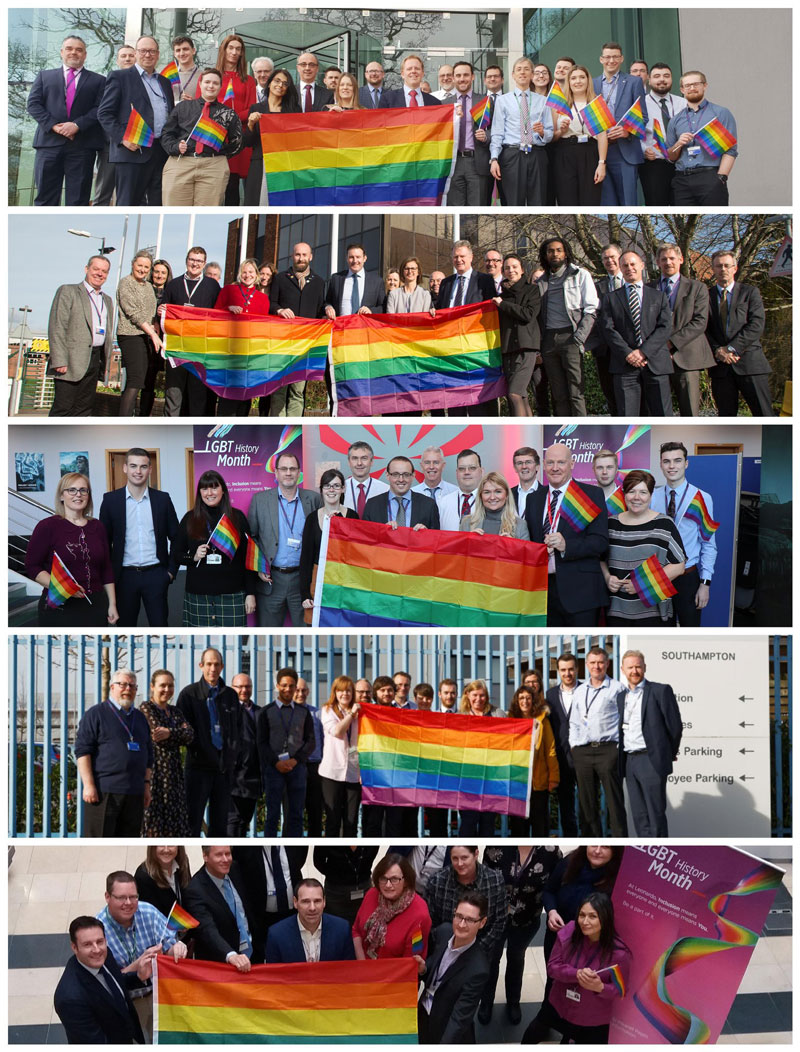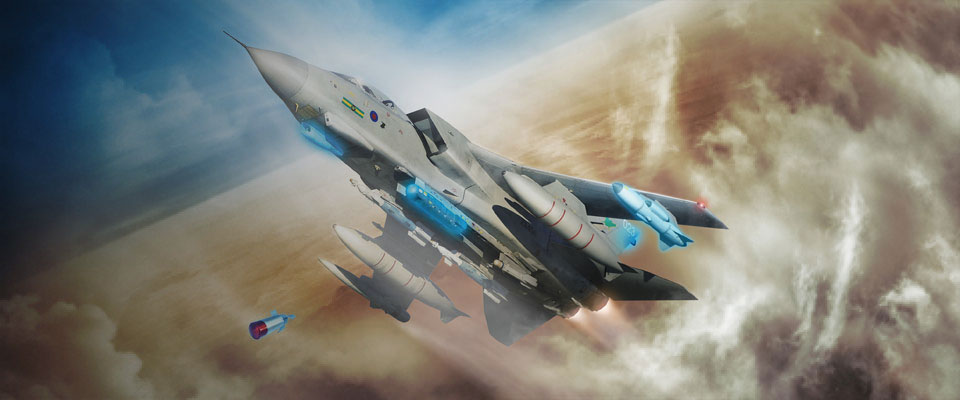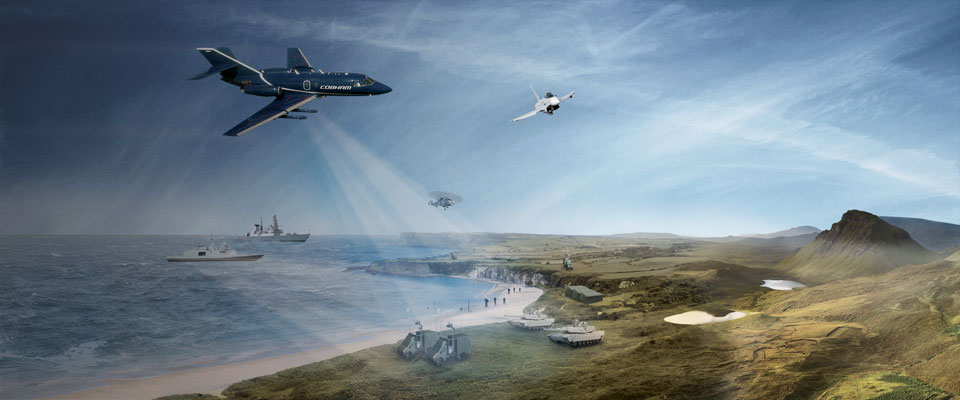 With February designated ‘LGBT History Month’, Leonardo launched a series of roadshows and lunchtime learning sessions to mark the occasion. Across our UK sites staff demonstrated their commitment as #LGBTAllies and that #DiversityMatters.
With February designated ‘LGBT History Month’, Leonardo launched a series of roadshows and lunchtime learning sessions to mark the occasion. Across our UK sites staff demonstrated their commitment as #LGBTAllies and that #DiversityMatters.
This drive to help build an inclusive working environment for everyone is being underpinned by a new ‘Pride’ LGBT employee network with members from across our sites in Basildon, Edinburgh, Luton, Southampton and Yeovil.
February also marked a major milestone in UK military aviation with the retirement of the Royal Air Force (RAF) Tornados after 40 years of service, including deployments in the Falklands and Gulf Wars, as well as Iraq and Afghanistan.
 Saying #FarewellTornado was particularly poignant for Leonardo as our engineers played a vital role in protecting the Tornado crews and planes. Our contribution to the programme began with the Radar Warning Equipment (RWE) on-board the Tornado GR.1 and went on to include the Skyshadow electronic countermeasure, the next generation Radar Homing and Warning Receiver (RHWR), Thermal Imaging Airborne Laser Designator targeting (TIALD) pod and the Common Jamming Pod, responding to ever-increasing electronic warfare threats.
Saying #FarewellTornado was particularly poignant for Leonardo as our engineers played a vital role in protecting the Tornado crews and planes. Our contribution to the programme began with the Radar Warning Equipment (RWE) on-board the Tornado GR.1 and went on to include the Skyshadow electronic countermeasure, the next generation Radar Homing and Warning Receiver (RHWR), Thermal Imaging Airborne Laser Designator targeting (TIALD) pod and the Common Jamming Pod, responding to ever-increasing electronic warfare threats.
Most recently, in early 2018, Tornado GR.4 became the first aircraft in the world to be equipped with BriteCloud – the next generation of expendable decoy developed by Leonardo engineers in collaboration with UK MOD.
 Elsewhere, Leonardo’s ongoing relationship with NATO was extended with a €180m deal to upgrade the Alliance’s electronic warfare training equipment. This sees us delivering a range of new equipment to NATO Joint Electronic Warfare Core Staff (JEWCS) which supports armed forces’ electronic warfare (EW) training. Equipment, to be delivered in tranches over the next four years from our EW centre of excellence in Luton, covers air, land and maritime domains and includes a capability for training crews to defend against anti-ship missiles.
Elsewhere, Leonardo’s ongoing relationship with NATO was extended with a €180m deal to upgrade the Alliance’s electronic warfare training equipment. This sees us delivering a range of new equipment to NATO Joint Electronic Warfare Core Staff (JEWCS) which supports armed forces’ electronic warfare (EW) training. Equipment, to be delivered in tranches over the next four years from our EW centre of excellence in Luton, covers air, land and maritime domains and includes a capability for training crews to defend against anti-ship missiles.

